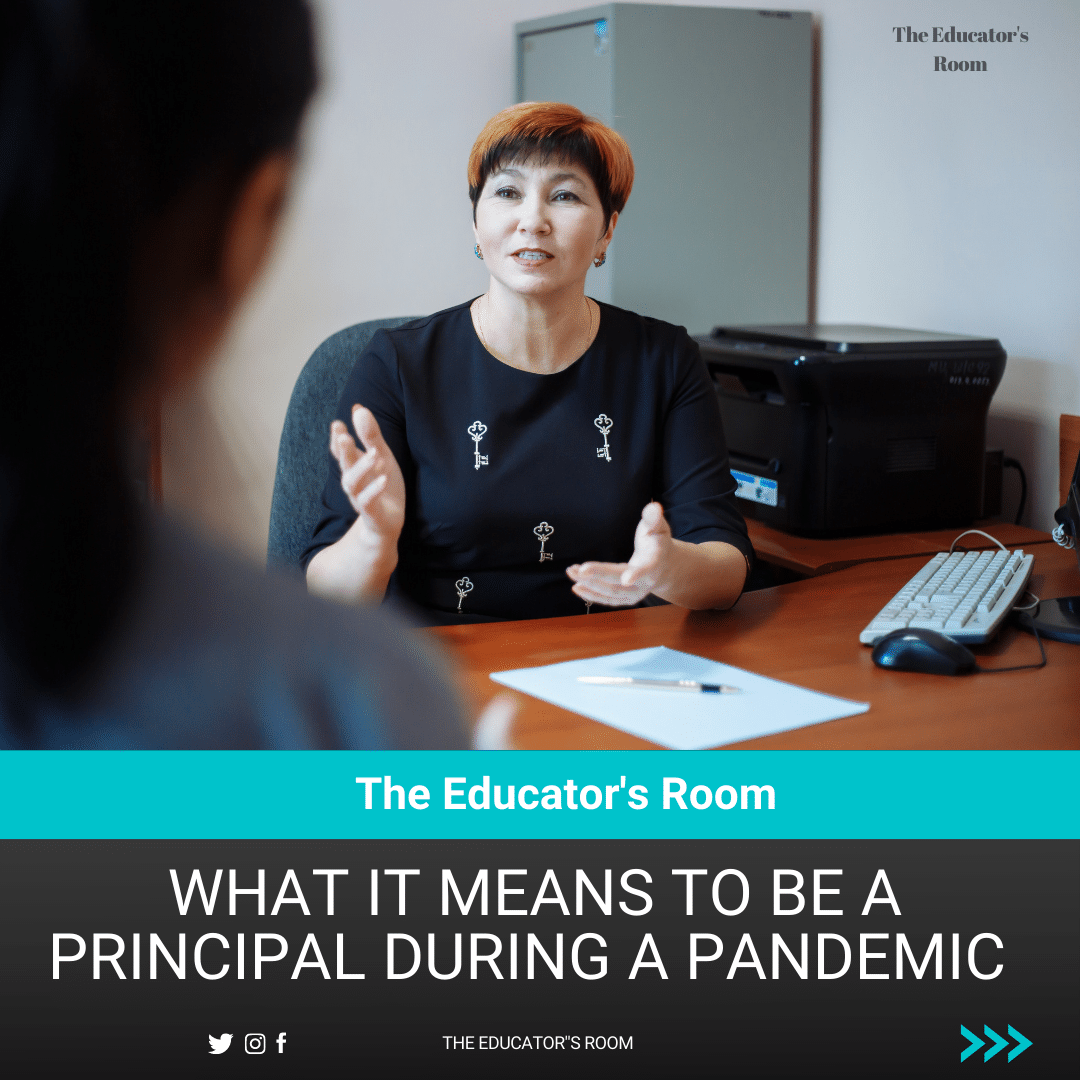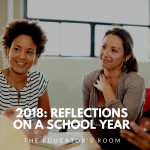Of course, nobody prepared school leaders for a pandemic-sized crisis. This is understood.
Nobody is ever prepared for the exception. We prepare for the norm, and if we’re adventurous, we plan to push the envelope on the norm to create a change agency. We calculate, evaluate, and assess those moves and execute them when the temperature is right, with just the right amount of risk thrown in the mix.
And then, there’s crisis schooling. The kind that doesn’t leave you with options to calculate, evaluate, and assess for the right amount of risk in an adventurous sort of way. It’s what forces you into action and decision making with a thousand variable pieces, expecting an attention to detail in a myriad of probable and improbable scenarios, with contingency plans, and protocols, and everything else in between.
[bctt tweet=”Being a principal in 2020 means being prepared (or not) to carry the burden of adult anxiety.” username=””]
Being a principal in 2020 means being prepared (or not) to carry the burden of adult anxiety. Mostly you don’t have the luxury to recognize your own anxiety, because you are responsible for carrying everyone else’s. It means humanizing the fears and insecurities and uncertainties of everyone else. It means keeping your head so clear that your stoicism even surprises you.
The thing about this pandemic is that it forced us all into rethinking everything we do to fit a scenario that we wouldn’t otherwise need to be prepared for. The thing about rethinking is that it forces us into doing things differently, and doing things differently means having to learn new ways and coming out of a place of known comfort, or for that matter known-discomfort.
Teacher Discomfort is Real
Teachers have always voiced how difficult and under-appreciated their labor is. Personally, I’ve always seen teaching as soul work and mind work. This is certainly not to glorify the work we do, or set a pedestaled expectation of all teachers everywhere. No matter where teachers stand about their practice, it is still known to them. The over-stressed bladders, the weight of evaluations, the bounds of standards-based learning, whatever the burdens maybe, teachers know the challenges that befall them daily.
What’s different now, is that known discomfort has been painted over with a plethora of uncertainties, throwing teachers into a realm of new. Educators have hurled into crash courses that could be given any range of titles: New Trends in Student Learning, Digital Classrooms for the 21st Century, Motivation in the Age of Technology, Parent Partnerships in Crisis Situations, Mental Health of Young Learners, and the list could go on. Add to these fears around health and safety, the added scrutiny educators often place on themselves of how well they are doing their job, and managing hybrid, remote, synchronous, or asynchronous learning. It is certainly a tall order- there is no doubt about that.
Administrator Discomfort is Real, too!
While our social media feeds are loaded with teacher memes, highlighting their stress, reminding parents to support them in this time, etc. they are also pitted against school administration to imply that somehow the pandemic’s challenges are created by them. Administrators have not had the chance to take the summer off either, they’ve been cornered into making decisions and directions purely due to protocols or expectations set in place from the departments of health and education, they’ve grappled with issues of liability, health, safety, planned for myriad contingencies, and balanced budgets to no end. It’s easy to throw the administration under the bus if you lack empathy and perspective-taking. No administration smirked fiendishly as they had to make decisions and no administration derived any pleasure from the work that had to be done. Each administration grappled with mammoth-sized problems against their own will. But perhaps the greatest weight they were unprepared to carry would be the one of being held responsible for the challenges of the pandemic itself.
School leaders across the country are near burn-out- and it’s not because of all the work they did. It’s because of the lack of support and understanding dished their way from the adults around them. The students have been the easier part. Remember to show grace.
Dr. Noor Ali is the Principal of Al-Hamra Academy in Massachusetts.





